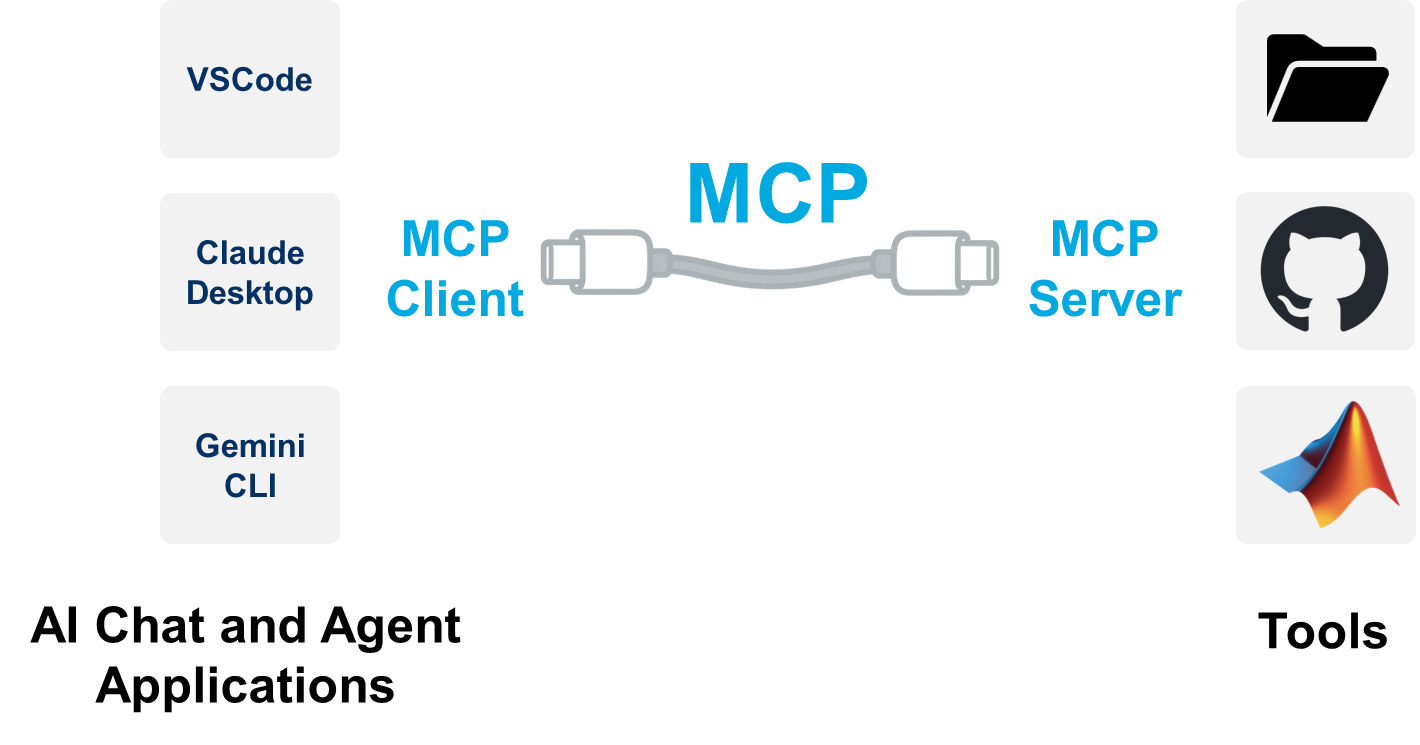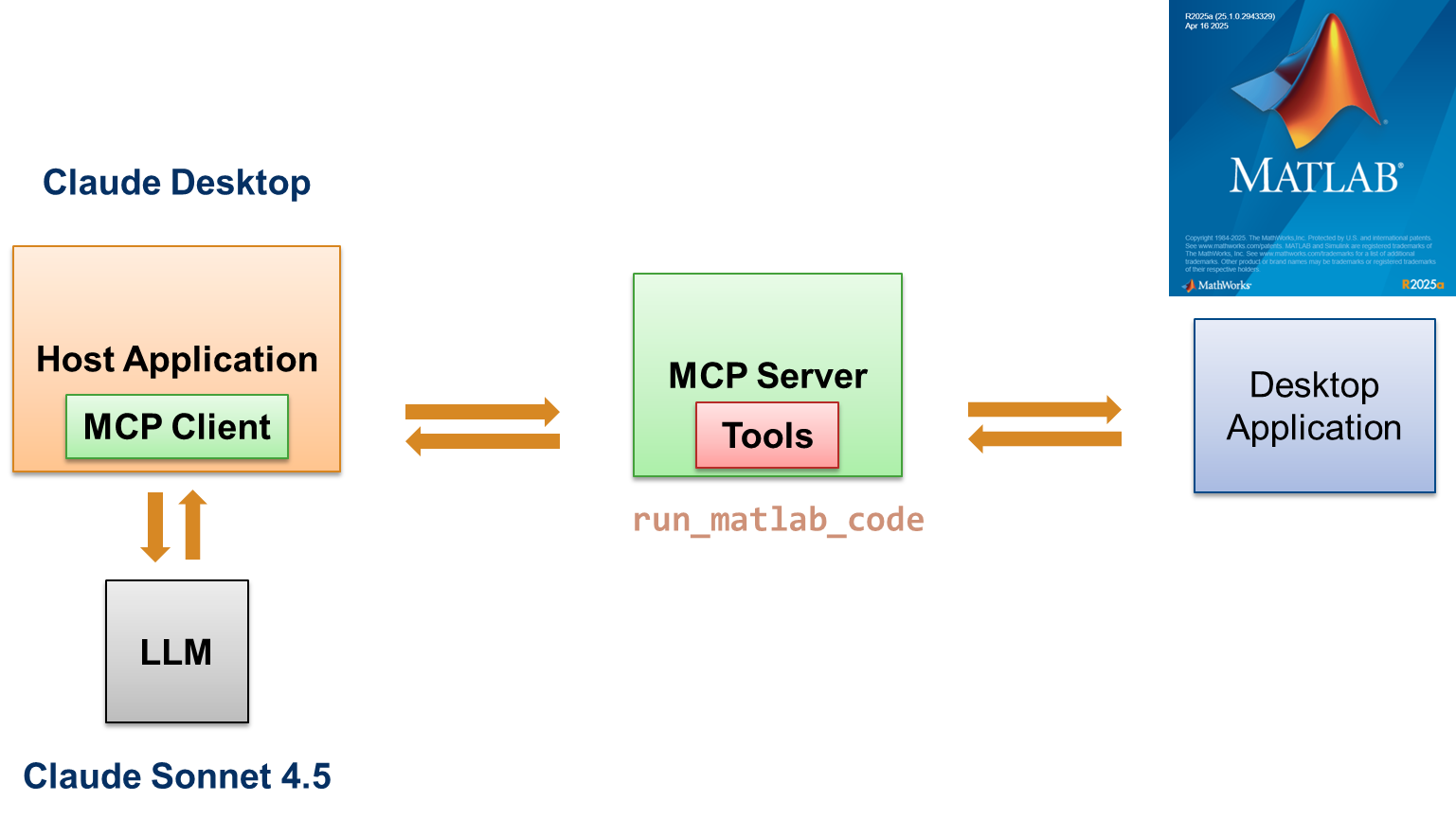Releasing the MATLAB MCP Core Server on GitHub
This blog post is co-authored with Akshay Paul, the product manager for the new MATLAB MCP Core Server that released on Friday 31st of October on GitHub:
github.com/matlab/matlab-mcp-core-server
 If we look at how this works specifically for MATLAB, here is an example of this communication taking place locally:
If we look at how this works specifically for MATLAB, here is an example of this communication taking place locally:

The AI Copy & Paste problem
If you are like me, you are probably familiar with this situation. Going to your favorite chat app (ChatGPT® or Claude® for instance) and asking a question about MATLAB. Now the annoying thing is that you have to copy paste the generated code to your MATLAB Desktop to run it. And if the code is incorrect (which let’s admit, it happens sometimes), then you need to copy the error and paste it in the chat. Iterate… There is now a more elegant solution, and in this blog post I am going to introduce how you can integrate MATLAB into an agentic workflow. But let's start with a quick demo of what this would look like:MCP: USB-C for AI
The issue raised by the copy pasting of code from a chat to MATLAB isn’t unique. In fact, you can expand this problem to any AI chat or agent (Visual Studio Code®, Claude Desktop®, Gemini CLI®, …) you want to connect to your tools (like your files, your GitHub repos, or your MATLAB). You quickly end up with a combination of MxN applications to connect. That is where the Model Context Protocol (MCP) comes in. It standardizes the connection of agentic AI apps to tools, resources and prompts, using a client-server architecture. If we look at how this works specifically for MATLAB, here is an example of this communication taking place locally:
If we look at how this works specifically for MATLAB, here is an example of this communication taking place locally:

- I enter a prompt in Claude Desktop. For example: “Create and run a linear regression in MATLAB”.
- Claude Desktop relays the prompt as well as connected MCP servers and their corresponding tools to the Large Language Model Claude Sonnet 4.5.
- The LLM generates the code and then decides it should invoke the run_matlab_code tool to run the code in MATLAB.
- The client communicates with the server which in turn communicates with MATLAB to run the code.
- Claude Desktop retrieves the results to format them in the chat response.
The MATLAB MCP Core Server provides a set of 5 tools, designed to best implement agentic coding with MATLAB:
- detect_matlab_toolboxes
- check_matlab_code
- evaluate_matlab_code
- run_matlab_file
- run_matlab_test_file
How to get started
Here are a few videos to get you started with 3 potential clients to our MATLAB MCP Core Server.- VS Code
- Claude Desktop
- Gemini CLI
Installation
Here is a short video on how to get the MATLAB MCP Core Server installed. The repository goes through the setup, but based on conversations with some of my colleagues on this, I feel like it's alwasy good to offer some handholding. I got this one running at home on my personal Mac Mini M4 with GitHub Copilot. I'm also going through the installation only on Mac here, as it isn't as seamless as Windows (with the catch of making the binary executable with chmod +x).- Category:
- Agentic AI,
- Generative AI







Comments
To leave a comment, please click here to sign in to your MathWorks Account or create a new one.